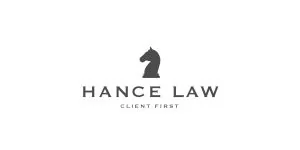Owning a business is a risky proposition. It demands time, entails a bolstered attitude and mindset, and requires skills in calculating and strategizing risk management.
There are an unlimited number of variables in the process of establishing a company. Some of the variables if combined with sound strategies could work while some might jeopardize the entire business start-up idea.
In this constantly evolving economy, the opportunities of venturing into entrepreneurship is enormous. The market is becoming more open to entrepreneurial ventures as the public and private sectors are honing business starters by rendering programs that are conducive for start-ups. With this setting, the competition has become steeper so much so that a good preparation is an understatement.
The key is to meticulously prepare and carefully plan the setting up of your business. Planning the business requires your passion and interests. It is essential that from the beginning you have a firm decision as to what type of business you will venture on. You must also be clear where you want to go and the process that it entails for you to achieve your goals. Thus, it is best to initially delineate a business plan. A sound and methodically prepared business plan will be a useful tool in communicating with the banks, investors, and prospective partners. The plan must be written and outlined in such a way that the banks, investors, and prospective partners will have no reason to reject you and will eventually decide in supporting your business idea.
The second point to consider are the commercial laws relating to the incorporation of a business in Luxembourg. Initially, you as the business owner must know what form of incorporation you want your enterprise to be – whether you want to establish the business alone or with others. Generally, you can tailor your business as to sole proprietorship, general partnership or as a limited company. You might be thinking why such form of incorporation is so important. The answer lies on the consequences of your choice of incorporation. Each form of incorporation has impact in terms of responsibility, risk, tax, rights, assets acquisitions and dispositions, and obligations.
Third consideration is whether you can meet the minimum capital requirement for establishing a business. Prior to the amendment of the Law of 10 August 1915, the paid-in minimum capital requirement is around 12,000 Euros. But recent revisions through the Law of 23 July 2016 paved way for a much lower equity to incorporate a limited liability company. The minimum start-up capital is now reduced to 1 Euro – 11,999 Euros. The business innovator or promoter is required to open a bank account in the name of the company and must transfer the amount of the share capital to this account prior to the submission of the deed of incorporation.
Likewise, one of the formal requirements that must be met is to check and verify the uniqueness of the name of the business. This can be done by requesting the Trade and Companies Register to confirm the availability or non-availability of a company's name.
In Luxembourg, the right to set up business is regulated by the Law of 2 September 2011. The business categories regulated are commercial activities, skilled craft trades, and specific professions (professions liberales) and such business activities require permit from the government. The business permit can be obtained from the Ministry of Small and Medium Sized Businesses and in some instances, the permit requires evidence of professional qualification and professional integrity. Simultaneously, a deed of incorporation and articles of association must be notarized. Once these documents were notarized, the notary public must levy an initial payment for all the associated and pertinent costs, fees, and taxes. Concomitantly, the notary must register the articles of association with the tax administration at the Registry one-stop shop and the company with the Trade and Companies Register within 4 weeks of the incorporation of the company.
To help you further in setting up a business in Luxembourg, deciding on the form of incorporation, drafting of the deeds and other commercial instruments, asset acquisitions, and funds management, you may consult Hance Law Avocats for structured advice.
The content of this article is intended to provide a general guide to the subject matter. Specialist advice should be sought about your specific circumstances.

